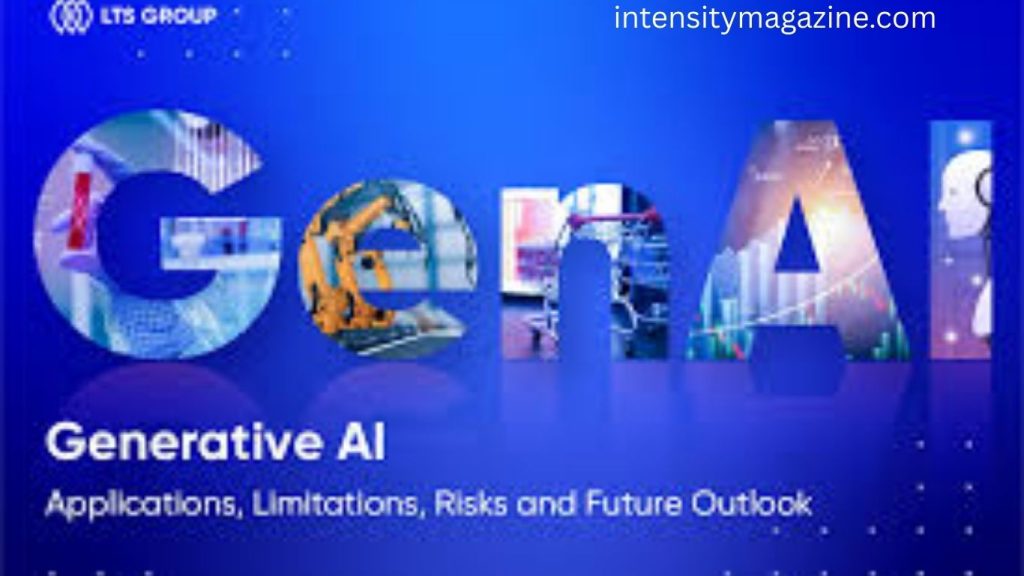Artificial Intelligence (AI) is no longer a luxury—it has become a necessity for survival and growth in today’s hyper-competitive digital world. Among its many branches, Generative AI stands out as a revolutionary force reshaping industries, especially app development. Once viewed as futuristic, generative AI tools are now widely accessible, helping businesses cut workloads, boost creativity, and deliver highly personalized digital experiences with minimal hassle.
Not long ago, most apps looked and felt the same. Today, powered by AI, businesses can create tailored, dynamic, and intuitive applications that feel as though they were built for individual users. What was once a complex, time-consuming, and costly process has become faster, smarter, and more efficient.
This article explores what generative AI is, why it matters, its benefits and challenges, and how it’s shaping the future of app development.
What Is Generative AI?
Generative AI refers to artificial intelligence models capable of creating original content—text, images, code, music, videos, and more—based on data they’ve been trained on. Think of it as a digital assistant that not only learns but also creates tailored solutions on demand.
While some fear AI might replace human professionals, the truth is different. Generative AI is not a replacement but a powerful collaborator. Developers, designers, and writers can work alongside AI to accelerate workflows, reduce errors, and deliver higher-quality results. Unlike humans, AI never gets tired, works 24/7, and scales effortlessly.
In app development, this means faster coding, automated debugging, and streamlined design processes that bring apps to market more quickly and with fewer flaws. Simply put, generative AI is a magic wand for developers and businesses striving to build modern, user-friendly applications.
Why Generative AI Matters for App Development
Since the global pandemic, industries worldwide have gone digital. From shopping and learning to entertainment and fitness, apps now shape everyday life. According to Buildfire, users downloaded over 218 billion apps in a single year, spending more than two hours daily inside them.
For businesses, having an app is no longer optional—it’s essential. But creating one from scratch is resource-heavy and requires significant expertise. This is where AI-driven app development shines, helping teams handle repetitive tasks, optimize workflows, and focus on innovation.
Generative AI transforms app development in several key ways:
Faster, Smarter Coding
Coding is often the most time-intensive part of app creation. Generative AI can write clean, efficient code from natural-language prompts, drastically cutting development time. Developers can then spend more energy on problem-solving and innovation rather than routine tasks.
Enhanced UI and UX Design
User experience is no longer negotiable. Apps must be sleek, intuitive, and engaging to succeed. Generative AI assists in producing wireframes, layouts, and design variations that capture user attention and improve retention.
Personalized, Intelligent Features
AI-driven apps learn from user behavior, delivering hyper-personalized experiences. Think of Netflix recommending your next binge-worthy show or Spotify playing a song you were just thinking about. This personalization increases loyalty and keeps users coming back.
Faster Debugging and Testing
Bugs can ruin user trust. Generative AI helps developers identify and fix errors in real-time, ensuring smoother performance and faster updates. Instead of wasting hours searching for issues, developers get accurate solutions instantly.
Key Benefits of Generative AI in App Development
The rise of generative AI offers numerous advantages for businesses and developers alike:
Saves Time: Automates repetitive coding and testing, speeding up time-to-market.
- Cuts Costs: Reduces the need for large teams and expensive infrastructure, making app development more affordable.
- Accessible to All: Enables even non-coders to create or improve apps through simple commands.
- Boosts Creativity: Sparks innovative designs, features, and user experiences that set apps apart from competitors.
For startups and small businesses, these benefits are game-changing. Generative AI levels the playing field, giving them access to tools once reserved for large corporations.
Challenges of Generative AI in App Development
Like any innovation, generative AI comes with challenges that businesses must navigate:
- Learning Curve: Teams need training to craft effective prompts and get accurate results.
- Data Dependence: High-quality outputs require large, diverse data sets, raising issues of fairness and bias.
- Tool Costs: Advanced features often require paid subscriptions, though costs remain far lower than hiring extra staff.
Despite these hurdles, the benefits far outweigh the drawbacks. With the right strategy, companies can overcome these challenges and unlock AI’s full potential.
The Future of AI-Powered App Development
Generative AI is still in its early stages, yet its trajectory is clear: it will become the backbone of app development in the coming years. Here’s what the future looks like:
- Apps Built by Everyone: Soon, anyone—not just developers—will be able to create apps simply by describing their ideas to AI.
- Hyper-Personalized Experiences: Apps will feel like they read your mind, delivering precisely what you need at the right time.
- Faster Updates: AI will predict bugs and issues before launch, ensuring smoother user experiences.
- Unimagined Applications: From assistive apps for differently abled people to real-time design tools, new app categories will emerge that we can’t even envision today.
The evolution will empower businesses of all sizes to create smarter, more engaging, and more human-like applications.
Frequently Asked Questions:
What is generative AI in app development?
Generative AI is a branch of artificial intelligence that creates new content—such as code, text, images, or designs—based on patterns it has learned. In app development, it helps developers write cleaner code, fix bugs, and design engaging user experiences faster.
How does generative AI benefit app developers?
Generative AI reduces repetitive tasks, accelerates coding, improves design, and automates testing. This allows developers to focus on creativity and innovation while cutting down time-to-market and overall costs.
Can non-developers use generative AI to build apps?
Yes. Many AI-powered platforms allow non-coders to create basic applications by using simple text prompts. This makes app development more accessible to entrepreneurs, startups, and small businesses.
Does generative AI replace human developers?
No. Generative AI is a supportive tool, not a replacement. It enhances productivity by handling repetitive and error-prone tasks while developers focus on strategic and complex problem-solving.
What industries benefit most from AI-powered app development?
Almost every industry can benefit, including e-commerce, healthcare, finance, education, gaming, and entertainment. AI enables these sectors to create smarter, more personalized apps that improve customer engagement.
What challenges come with using generative AI in app development?
Some common challenges include a learning curve for effective prompt usage, reliance on quality data, potential bias in AI outputs, and subscription costs for advanced AI tools.
How does generative AI improve user experience (UX)?
By analyzing user behavior, generative AI creates personalized recommendations, adaptive interfaces, and intuitive features. This ensures that apps feel more engaging and tailored to each individual user.
Conclusion
Generative AI is no longer just a trend—it is a game-changing force redefining app development. By simplifying coding, enhancing design, automating testing, and delivering hyper-personalized experiences, it empowers developers and businesses to build apps faster, smarter, and at lower costs. While challenges like data quality and tool costs exist, the benefits far outweigh the drawbacks.


